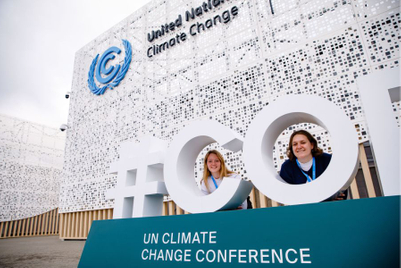.jpg&h=570&w=855&q=100&v=20250320&c=1)
In the last two decades, disclosures about environmental, social and governance (ESG) criteria reveal a rather large-scale change in corporate sustainability practice. From the early 1980s, these evolved from merely articulating commendable intentions and enhancing internal efficiencies to confronting complex business issues, which includes a wide range of strategic relationships and activities.
Despite being voluntary in numerous regions, ESG disclosures have emerged as a significant focal point of research, especially in elucidating the factors that motivate companies to exhibit transparency regarding their initiatives. With the rising global scrutiny concerning unethical corporate conduct, there exists mounting pressure on businesses to ‘account’ for their ESG activities and to showcase their impact.
The increased demand for transparency constituted a pivotal theme at the recent COP29 summit. This underscored the pressing necessity for companies to transcend greenwashing and adopt authentic climate communication.
As governments implement more stringent regulations concerning environmental claims, brands and their advertising agencies are experiencing escalating pressure to communicate their sustainability commitments with integrity. This transition truly needs a quantum shift in strategy whereby environmentally friendly messaging is powerful but backed by real action on climate-related issues.
Regulation pressure on greenwashing
The pressure on climate change has come to a record high, and with the spotlight that came from COP29, governments are ready to make new, stricter rules regarding environmental claims. Previously celebrated as badges of good ecological credentials, but now studied carefully, phrases like ‘climate neutral’ or ‘net zero’ fall into that category.
The reason is simple: whereas they are predicated on carbon offsetting rather than decreases in emissions, many claims are being made. For instance, a company will declare itself ‘net zero’ by buying carbon credits to offset its balance of emissions while continuing to conduct business as usual. This approach will give the illusion of progress without affecting the carbon footprint at all.
Misleading claims not only pose the risk of potential regulatory penalties but also engender reputational harm. Consumers are becoming increasingly more informed regarding sustainability and are prompt to point out discrepancies.
As buyers’ perception of the authenticity of efforts to commit become more acute, brands that are unable to adeptly walk the line risk losing consumer trust. As more stringent definitions are coming in from the EU and also in the USA with the FTC in regard to the ‘sustainable’ claim, more ambiguous or misleading terms are gone quicker than ever before.
A gap in corporate climate communication
One of the fundamental problems in the anti-greenwashing struggle is the line of demarcation between marketing and sustainability departments of firms.
Marketing units are always concerned with responding to the imperatives of creating interesting and even emotionally appealing narratives that appeal to people. In contrast, sustainability teams focus more on the accuracy and authenticity of environmental statements, ensuring that these statements actually represent the climate activities of the firm.
This often results in mixed messages. For instance, a marketing organization could emphasise that the product being sold is ‘eco-friendly’ because it is packed in recyclable materials.
However, when members of the sustainability team highlight that the production process remains carbon-based, the message so created is misleading. The absence of close coordination between sustainability teams and marketing teams often results in oversimplification or exaggeration of efforts in sustainability, thus leading to allegations of greenwashing.
To address this gap, mandatory ESG training for employees can ensure they are equipped to evaluate their actions and align with the company's sustainability goals. Additionally, selecting advertising agencies based on their expertise in ESG mandates can help create credible, impactful messaging.
The marketing teams have to concentrate on transparency than using jargon, and sustainability teams have to communicate their ideas and what has been achieved properly and engagingly. Whenever these departments operate in a silo, the chances of false declaration become more prominent, which means that the brand is subjected to regulatory as well as reputational risks.
Differentiating through transparency
Stricter regulation and growing distrust from consumer increase significantly the opportunity for any company which has factually environmental credentials. Brands that adopt a commitment to clear, truthful communication about their sustainability initiative clearly differentiate them from a market where otherwise it becomes crowded.
That difference isn't just about compliance. It's about building a foundation of trust with increasingly more eco-conscious consumers.
Transparency is key. Rather than relying on ambiguous words like ‘carbon neutral’, companies should be disclosing details about their own environmental footprint.
That can include disclosing data about carbon emissions, outlining specific steps being made to reduce them, and explaining offsetting programs that are in place. By fixing the story and avoiding statements of simplistic fact, companies can build a much healthier relationship with consumers that dislike being lied to.
For instance, Patagonia, a company celebrated for its dedication to environmental causes, has established its reputation through a transparent approach. The brand candidly shares the challenges it encounters in its pursuit of sustainability, recognising areas where further improvement is necessary.
This level of honesty resonates with consumers and bolsters the brand's credibility. Similarly, firms that go so far are able to gain competitive advantage, showing that their sustainability promises are more than just marketing window dressing.
Supporting authentic climate communication
It will be important for advertising agencies to assist brands in navigating the evolving climate communication landscape. As sustainability communications continue to become more complex, these agencies must lead beyond clever slogans and develop authentic stories about their brands.
For this, they will require a substantive understanding of the environmental efforts being made by their brand as well as a general sense of the regulatory landscape.
Agencies have the capability to be that middle carrier, addressing the marketing and sustainability team's gap, ensuring that the messages designed are interesting and reliable. This effort demands that agencies spend resources on orienting their employees on the issues of climate and the complexities surrounding claims of sustainability.
The agencies earn the ability to well advise their clients on the concerning issues associated with greenwashing by gaining expertise in the language of climate science, regulation, and claims.
Agencies can help present more layered climate storytelling: something more than mere green card playing. This can be done with an example of measures a brand has taken toward reducing emissions in its supply chain rather than simply backing a ‘carbon-neutral’ product. What this does is beget a richer meaning and also makes the consumers make the better choice.
Consumer messaging in procuring trust
As skepticism toward brands increases, so does the demand for trust in climate messaging. Brands set realistic as well as measurable sustainability targets, and remaining transparent about the progress made toward its achievement is critical.
For example, a company sets a big goal to reduce carbon emissions by 50% in five years. By offering consistent updates regarding its advancements, encompassing any obstacles or difficulties encountered, the brand is able to illustrate its dedication to authentic climate action.
With the easy availability of fact-checking and quick access to almost all forms of information online, authenticity is the need of the hour. Authentic brands will find that confidence in honest communication tends to build greater loyalty among environmentally conscious consumers. And this can lead to a sustainable advantage because trust becomes a key point of differentiation in the market.
The bottom line is clear: greenwashing is not a solution anymore. The need for real, transparent communication about climate commitments is more overdue than ever with the ever-tightening regulatory lid on polluters' mouths and escalating scrutiny by consumers.
While this preserves the brand from pitfalls connected with claims under false pretenses, it might bring much more: leadership in fighting climate change. Commitment to truth in message supports interdisciplinary collaboration between marketing and sustainability teams.
Agencies are important in directing brands toward responsible and truthful climate communications. In the process of helping make the record straight, agencies can play a much bigger role in far-reaching cultural change as environmental claims are made in action that is measurable and concrete, so consumer trust in what they are getting builds up. This takes one into a future where the truth concerning climate becomes the norm rather than the exception of a world with greenwashing.
 - Surbhi Shukla, lead—marcom, Jakson Green.
- Surbhi Shukla, lead—marcom, Jakson Green.


.jpg&h=334&w=500&q=100&v=20250320&c=1)
.jpg&h=334&w=500&q=100&v=20250320&c=1)


.jpg&h=334&w=500&q=100&v=20250320&c=1)


.jpg&h=334&w=500&q=100&v=20250320&c=1)

.jpg&h=334&w=500&q=100&v=20250320&c=1)




.jpg&h=268&w=401&q=100&v=20250320&c=1)

.jpg&h=268&w=401&q=100&v=20250320&c=1)

